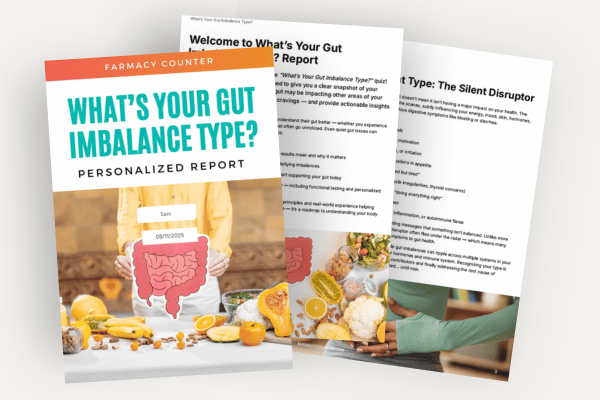
You can be eating all the right foods — organic, whole, nutrient-dense — and still feel bloated, heavy, or uncomfortable after meals.
The missing link might not be on your plate.
It’s in your nervous system.
Your gut and your brain are in constant conversation. When you’re under stress, that dialogue shifts — and digestion quietly pays the price.
Here’s how stress disrupts your digestion (and what to do about it):
1. It slows down stomach acid and enzyme production
When your body senses threat — even if it’s just a full inbox or running late — it diverts energy away from digestion. That means less hydrochloric acid and fewer digestive enzymes, making it harder to break down food and absorb nutrients.
2. It tightens the muscles in your gut
Ever notice your stomach clenching when you’re anxious? Chronic tension in the gut can impair motility, leading to bloating, constipation, or discomfort after eating.
3. It weakens your gut barrier
Stress hormones can increase intestinal permeability — often called “leaky gut.” This allows larger food particles and toxins to cross into the bloodstream, triggering bloating, food sensitivities, and immune reactivity.
4. It disrupts the balance of gut bacteria
Your microbiome thrives in a calm environment. Chronic stress shifts that balance, favoring more inflammatory species and reducing beneficial bacteria — the ones that support digestion, mood, and immunity.
5. It triggers inflammation
When stress becomes chronic, it keeps your immune system activated. The gut lining bears the brunt of that inflammation, creating a vicious cycle of irritation, sluggish digestion, and immune reactivity.
6. It changes the way you eat
Stress disconnects you from your body’s cues. You might eat too fast, skip meals, or eat while multitasking — all of which impair your ability to digest and assimilate food.
7. It keeps your body in “survival mode”
Digestion is a “rest and digest” function, governed by your parasympathetic nervous system. When you’re always in fight-or-flight, your body doesn’t feel safe enough to do the deep work of digestion.

What This Looks Like in Real Life
Somewhere along the way, your body started tightening before you even sat down to eat.
You were breathing from your chest. Your mind was racing. Your appetite felt off.
And maybe you didn’t think much of it — until food stopped “landing” the way it used to.
That lingering heaviness in your stomach or post-meal bloat isn’t always about food intolerance. Sometimes, it’s a nervous system imbalance that your gut is trying to communicate.
The Shift Starts with Awareness
You don’t need to overhaul your life to begin restoring balance. But you do need to start paying attention.
- Notice the tension in your shoulders before you eat.
- Notice how often you eat standing up, scrolling, or distracted.
- Notice how shallow your breathing becomes during the day.
That’s where the reset begins.
Try this before your next meal:
- Take five slow, deep breaths, in through your nose and out through your mouth.
- Feel your shoulders drop.
- Taste your food. Eat slowly.
Your body digests best when it feels safe.
And when you begin creating safety in small, consistent ways — your gut will respond.
Functional Medicine Takeaway
In functional medicine, we don’t just look at what you eat, but how your body receives it.
If you’re struggling with bloating, sensitivities, or sluggish digestion despite a clean diet, supporting your nervous system is often the missing piece.
Start with daily relaxation practices, mindful eating, and restoring circadian rhythm — and you’ll likely notice your digestion improving long before you change a single thing on your plate.
Ready to Take the Next Step?
If low energy, mood swings, cravings, or brain fog feel like your “new normal,” your gut may be asking for attention. Understanding which type of imbalance you’re dealing with—whether it’s low stomach acid, bacterial overgrowth, or a weakened gut lining—can completely change your approach.
👉 Take our 3-minute “What’s Your Gut Imbalance Type?” Quiz here to get clarity on what’s actually happening beneath the surface.
You’ll receive a personalized 7-page report with:
✅ Your specific gut imbalance type (and what it means for you)
✅ Targeted food and lifestyle strategies based on your results
✅ A clear, functional medicine roadmap to feeling better
This quiz is your first step toward understanding your gut and starting to feel like yourself again.

What’s Your Gut Imbalance Type?
Take our 3-minute quiz to discover your unique gut type — and get a personalized 7-page report with insights and actionable steps to support digestion, energy, mood, and overall gut health.






